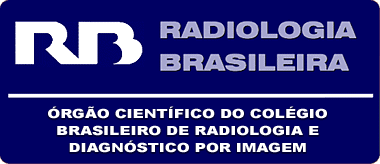OBJECTIVE: To determine the sensitivity of upper gastrointestinal (UGI) series, adopting the 24-h esophageal pH monitoring as the gold standard in the diagnosis of gastroesophageal reflux disease (GERD) in preterm newborns, besides describing the presence of anatomical abnormalities in the digestive tube. MATERIALS AND METHODS: The present study included 41 neonates with average birth weight of 1,243.9 g, presenting signs/symptoms of GERD and abnormal 24-h esophageal pH monitoring (reflux index > 10%). The UGI series was performed as soon as the infants' clinical conditions were considered sufficiently stable. RESULTS: The 24-h pH monitoring and UGI series were performed respectively at 49.8 and 66.8 days of life. The UGI series sensitivity was of 56.1% (CI 95%: 39.9-71.2%). The reflux index was significant in 41.4%, moderate in 44.8%, and mild in 13.8% of the cases. Only one case of hiatus hernia was identified by UGI series. CONCLUSION: Upper gastrointestinal series has demonstrated low sensitivity in the diagnosis of GERD in preterm newborns and was not associated with the reflux severity as compared with pH monitoring. However, it is useful in the detection of anatomical abnormalities in the upper gastrointestinal tract.
Gastroesophageal reflux disease; Upper gastrointestinal series; 24-h esophageal pH monitoring; Preterm newborns




